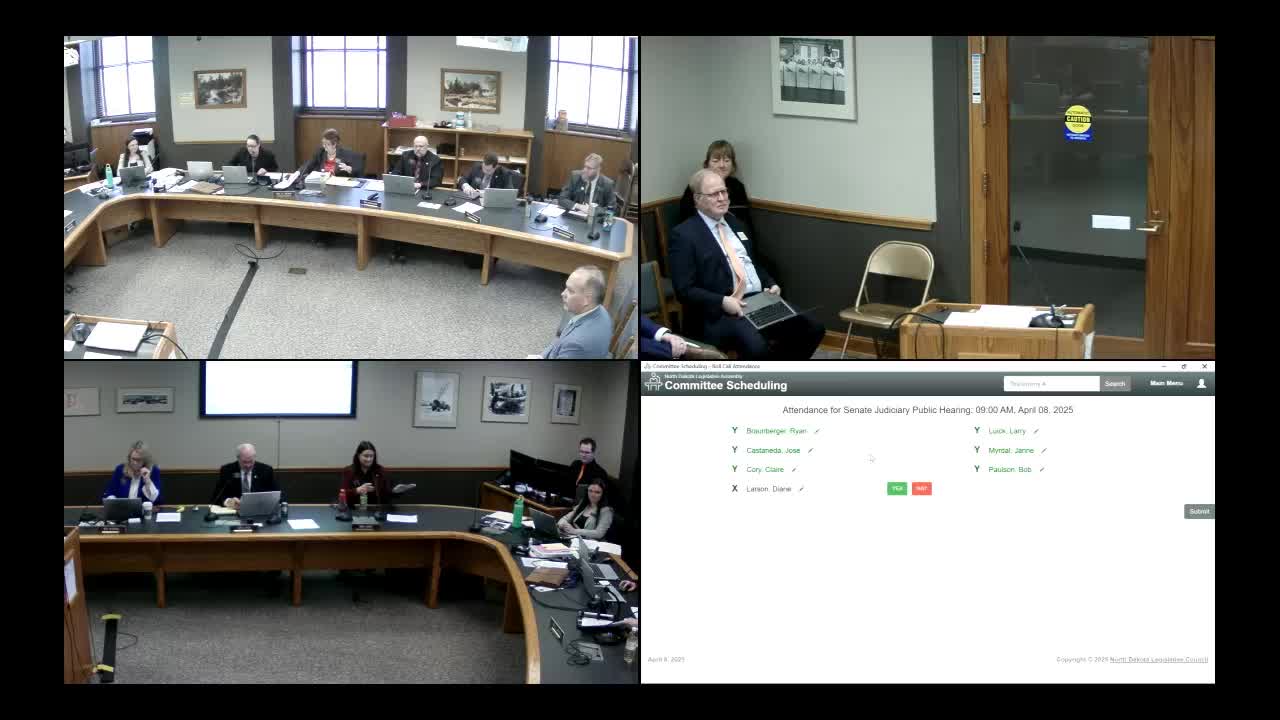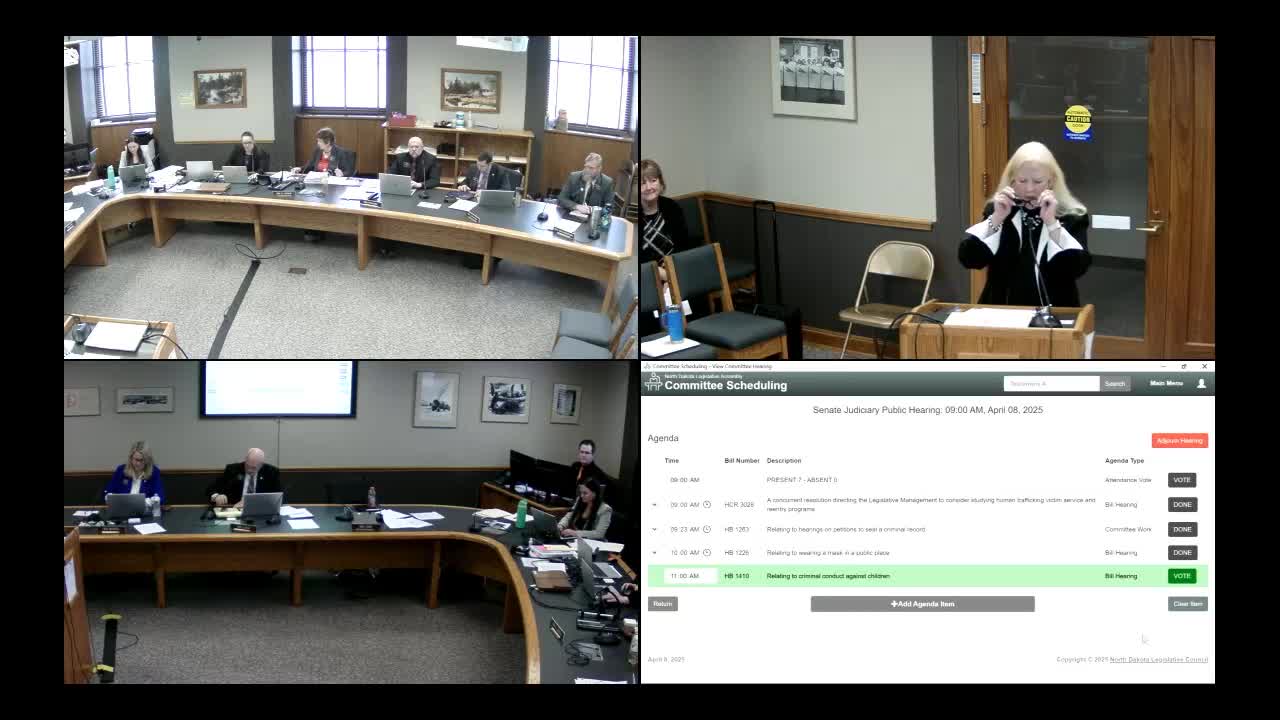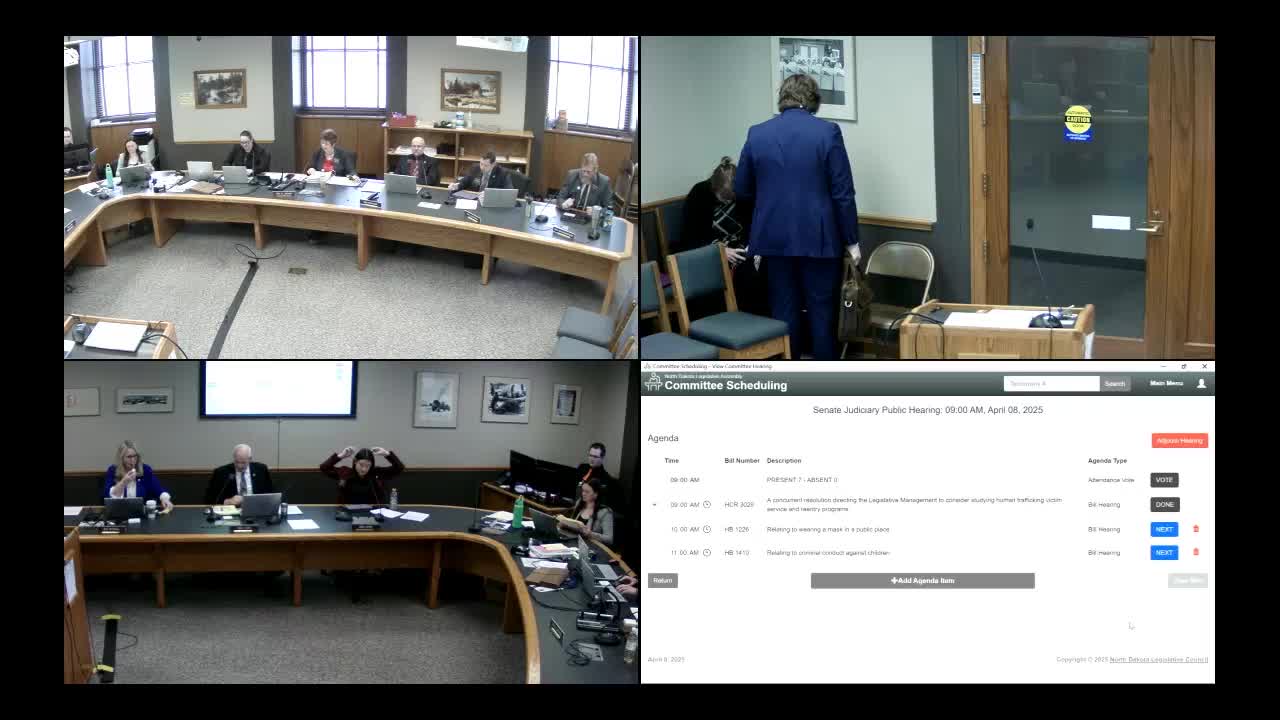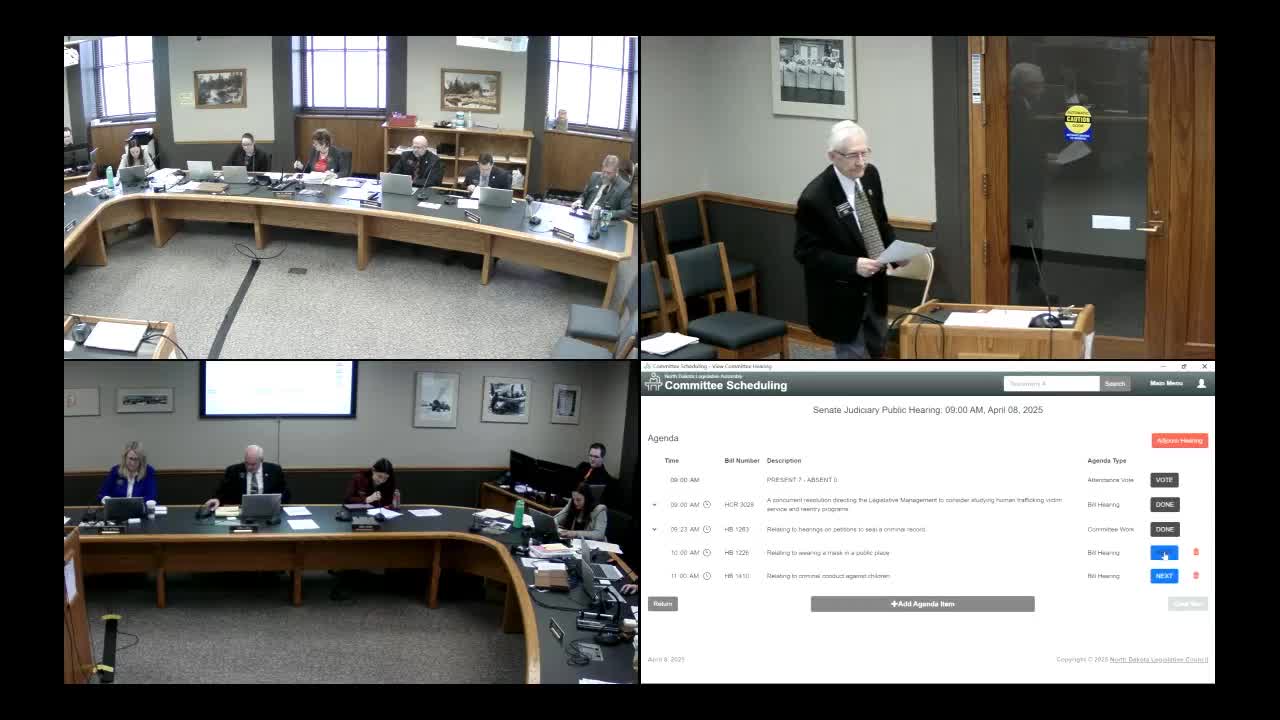Article not found
This article is no longer available. But don't worry—we've gathered other articles that discuss the same topic.

Senate Judiciary backs study on human trafficking victim services and reentry

Committee approves study of statutes on criminal conduct against children, AI and terminology changes

Committee recommends due pass for bill easing record‑sealing process with House changes retained

